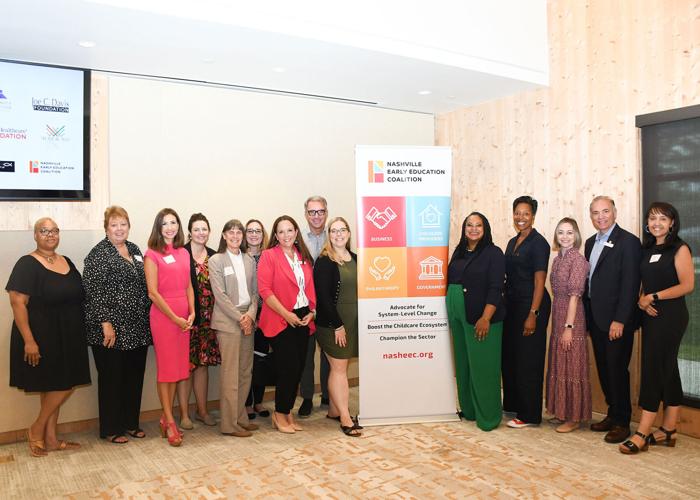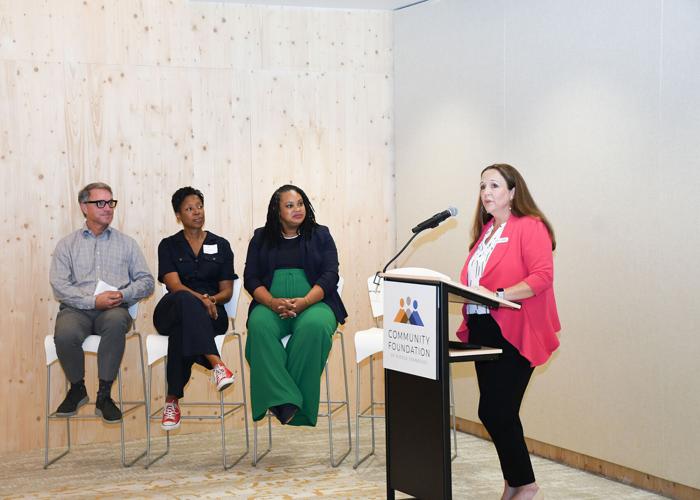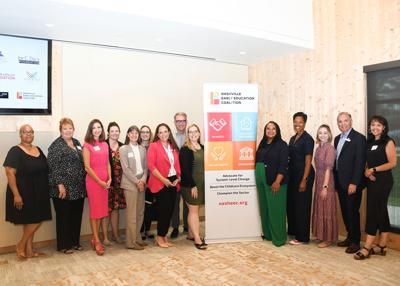Twenty-nine leaders representing the early childhood education sector, state and local government, and business and philanthropic communities are uniting to form The Nashville Early Education Coalition. The goal: to alleviate Nashville’s child care crisis.
Though the issue is not unique to Nashville, insufficient access to child care has reverberating effects on early childhood development, graduation rates, the local workforce and the economy. According to the Tennessee Commission on Children and Youth’s annual “The State of the Child in Tennessee” report, there are eight child care centers per 1,000 children in Davidson County. Not only do many families have trouble securing pre-K child care amid limited seats and sometimes years-long wait lists, but a 2022 report from Tennesseans for Quality Early Education states that 60 percent of working parents in Davidson County have experienced “employment disruptions due to inadequate child care, citing affordability, quality and access as major challenges.” The report also notes that the child care issue led to $275.4 million in economic losses in Davidson County in 2022.
Looking at scarcity, cost burden and workforce issues — and how the state will try to dig out of it
“The [Nashville Early Education Coalition] will be that entity dedicated to aligning resources, information and actions that help us move from a really fragmented marketplace to a healthy, integrated child care ecosystem,” said Community Foundation of Middle Tennessee CEO Hal Cato during the coalition’s Sept. 26 announcement.
Seated alongside Cato were other coalition members including United Way of Greater Nashville executive vice president and chief community impact officer Erica Mitchell, executive director of Youth Encouragement Services Viva Price and NEEC executive director Melanie Shinbaum. A complete list of the coalition’s 29 members can be found on its website, nasheec.org.
Shinbaum outlined the NEEC’s primary goals, including advocating for systemic change, bolstering the early childhood workforce through better wages, increasing accessibility through affordability and promoting awareness about the importance of early childhood education. This includes advocating for state and local policy changes, engaging the community in related conversations and creating a “director’s catalyst cohort” to support leaders in the sector.
Price spoke about her experience dealing with the challenges of the local early education system as both a parent and a professional. She told attendees that she nearly missed the opportunity to relocate to and work in Nashville because she couldn’t find an open pre-K child care spot — though she was ultimately able to secure one. Price has also been working with Monique Hodison — executive director of Schrader Lane Childcare and Learning Academy — to establish Little Builders, a preschool that will host 12 children with an emphasis on serving families of color, New Americans and low- to moderate-income families. Though Hodison has decades of experience in the early education space and already has a location secured at one of the Youth Encouragement Services buildings, she says going through the regulatory steps needed to open the preschool has been a difficult two-year process with lots of “red tape.”

Melanie Shinbaum addresses the Nashville Early Education Coalition Advisory Council
Though the 70-year-old host building is already used to facilitate afterschool and summer programming, regulations change based on the number of hours adolescents would be in the building each week. As such, they’ve had to retrofit the space to meet code standards, which includes sorting through complicated city manuals, rezoning the building, applying for building permits and more.
“There’s not a streamlined checklist that says, ‘Do these things and then come to us and then we’ll come inspect you,’” says Price. “And you can’t even get to the point where an inspection takes place until after you’ve gone through Planning, Zoning and Metro Fire.”
While keeping little ones safe is extremely important, the difficult regulatory processes set up to protect them serve as a barrier for some who would be willing to open early education centers. The barriers also lead others to start unlicensed centers, which — with less oversight — present other dangers for young children. Multiple infants have died in unlicensed centers in Nashville over the past few years, for example. Hodison says she would like to create a guide to help others go through the process of opening an early childhood education center. The new coalition will be able to provide additional resources for them as well.
“It’s all connected,” says Price. “Early childhood education is going to be connected to graduation rates, which is connected to the health of our city as a whole. So whether or not you’re a parent right now, it’s going to impact your entire community.”








